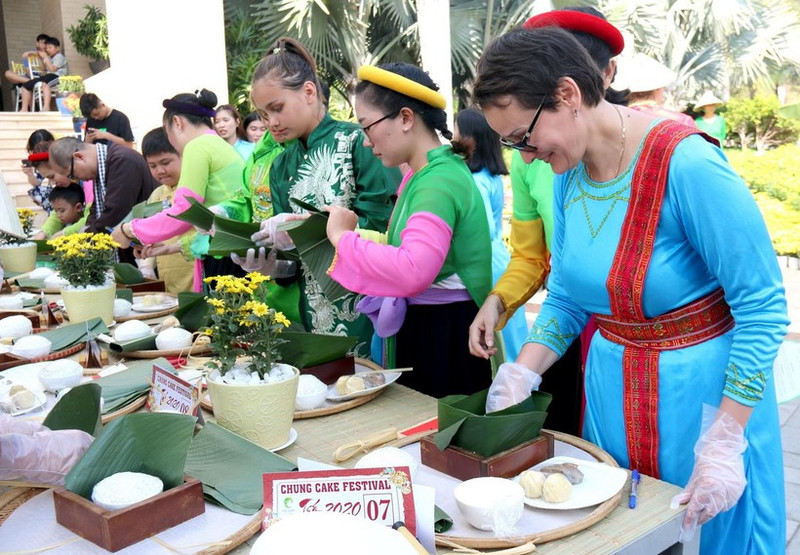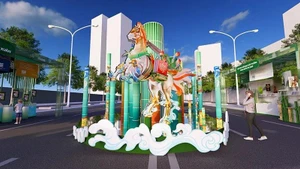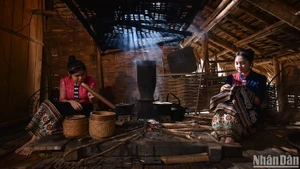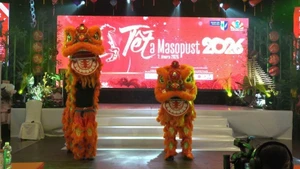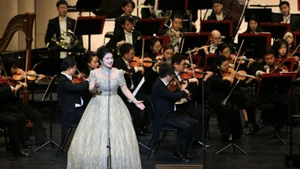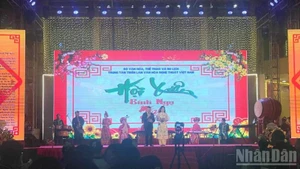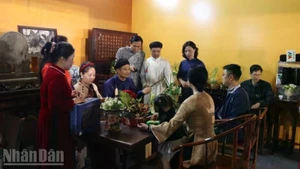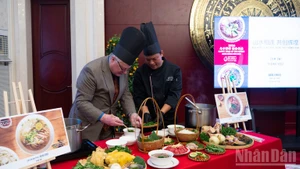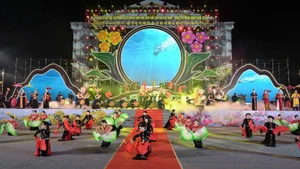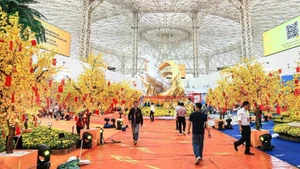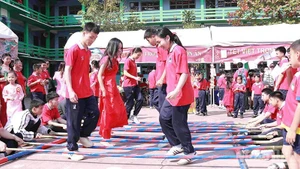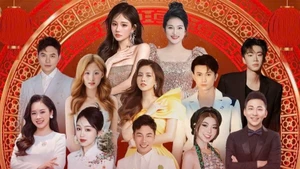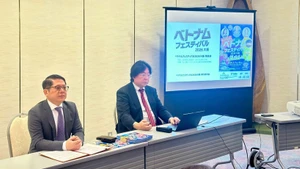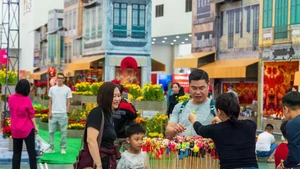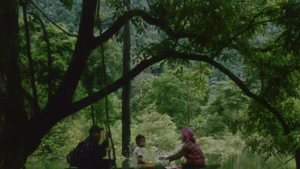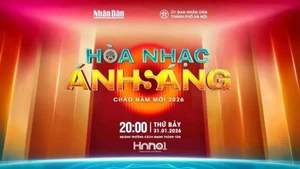For foreigners who are residing and working in Vietnam long-term, Tet has become an equally important occasion as Christmas and New Year.
“We come to Vietnam not only as guests from afar, but we want to become a part of the culture here,” said Deputy Executive Director at Goethe-Institut Hanoi Steffen Kaupp.
Kaupp shared that some of his Vietnamese friends invited him and his family to visit their homes to join their Tet celebrations on the first days of the lunar New Year, during which he was treated with not only delicious Vietnamese dishes such as ‘banh chung’, pork sausage, and traditional cakes but also enjoyed the gathering atmosphere and gained an understanding of many unique Tet customs.
After more than two years living in Vietnam, Tet for me is an occasion for family and friends and enjoying Vietnamese cuisine and customs.
Deputy Executive Director at Goethe-Institut Hanoi Steffen Kaupp.
“Those moments made us feel like we were part of their family. Therefore, after more than two years living in Vietnam, Tet for me is an occasion for family and friends and enjoying Vietnamese cuisine and customs,” he stated.
Sharing the same view, Sophie Maysonnave, Counsellor for Cultural Cooperation and Activities at the French Embassy in Vietnam and Director of the French Institute in Vietnam, said that Christmas, New Year and Tet all share similarities as they help to tighten the bond among family members.
She revealed that last year, she invited her 87-year-old father-in-law to Vietnam to celebrate Tet with her family. Like other families in Hanoi, they headed to Hoan Kiem Lake and walked around it to enjoy the Tet atmosphere.
Vietnamese Tet Festival also creates a familiar atmosphere for those from Asian countries who are living in Vietnam, thus helping them ease their nostalgia for their homeland.
According to Osuka Shoya, a staff at the Japan Foundation Centre for Cultural Exchange in Vietnam, the way Vietnamese people celebrate Tet has many similarities with Japan.
He said that on New Year's Day, Japanese people engage in “Hatsumode”, which is the initial shrine or temple visit of the year, where people express gratitude for the past year and pray for safety and health in the coming one.
“During my visit to Da Nang City at the end of the year, I really felt closer to the Vietnamese people when joining the crowd going to the temple on New Year's Eve,” he said.
He decided to stay in Vietnam during Tet to welcome the New Year of the Dragon.
“I want to explore the way Vietnamese people arrange their tray of offerings and prepare their feasts for Tet,” he said, adding that he also wants to experience “Hatsumoude” in Vietnam with his close friends.
“I hope that the traditional Tet holiday will help me better understand Vietnamese culture and people,” he stated.
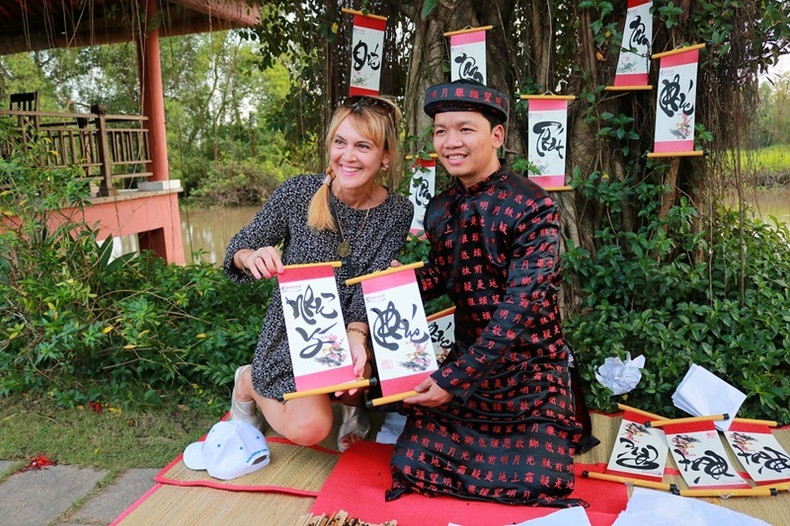 |
| The traditional Tet holiday helps foreingers who are living in VIetnam better understand Vietnamese culture and people. (Photo: vietnamnet.vn) |
For foreigners who are working at cultural centres such as the Goethe Institute, the Japan Foundation Centre for Cultural Exchange in Vietnam, the French Institute in Vietnam, and the Korean Culture Centre in Vietnam, Tet not only helps to connect members but is also an occasion to tighten cultural exchanges between countries.
This can be seen through the New Year's greeting card of the Goethe-Institute Hanoi that Steffen Kaupp showed us. The card is decorated with the image of the dragon, the zodiac of the year 2024. It also features details of a Christmas tree and Christmas decorations.
Every year, the Korean Cultural Centre hosts a wide range of activities introducing the unique culture of the Republic of Korea to Vietnamese people.
During this year's Lunar New Year, the centre will organise activities to help participants explore the New Year celebrations of Korean and Vietnamese people.
Choi Seung Jin, the centre’s Director, revealed that participants will be invited to enjoy some of signature Korean dishes such as injeolmi (rice cake dessert) cake, sweet rice punch, and tteokbokki (spicy rice cakes).
They can also take part in various folk games of the two countries and explore Vietnamese and Korean calligraphy.
